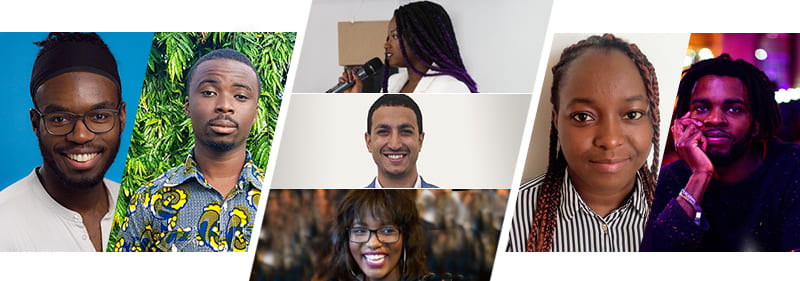Inspiring Black Engineers and Scientists
As we come to the end of Black History Month, we want to celebrate and pay tribute to some of our students and the outstanding contributions they’ve made to help make the university a place for everyone.
Eileen Atieno
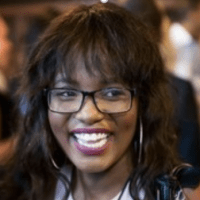
Eileen has a first class honours degree in aerospace engineering and is now working on a PhD in advanced composites. Having been the only black female engineer in the aerospace department at one point, she was determined to increase representation across the faculty. She established the Black Engineers Society, had a key role in the Black Mentors program, is part of the Equality, Diversity and Inclusion Group in her school and has recently set up the anti-racism group in the Bristol Composites Institute.
Find out more
Watch her full interview
“Increasing diversity is difficult. When I started my degree, people would ask if I’d come in via clearing. That kind of thing makes you feel you don’t belong, despite all your hard work. Universities need to stop targeting private schools because most black kids don’t come from that background. There’s also a large attainment gap compared to our white and Asian peers. So there needs to be a rehaul of the culture before we talk about numbers.
“Role models are important too. I never saw anyone who looked like me doing a PhD until I met one of the lab assistants and we talked about going the extra mile. Being the only black person in the office – yet again – I talked to Steve Eichhorn about bringing in students from a local state school to show them what engineering’s about and what they can achieve.”
Wessam Hassan
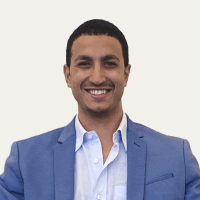
Wessam, a year 4 Engineering Design* student, consistently goes above and beyond. He’s produced a marketing video for his course, helped at open days and other events and received outstanding feedback on his exceptional drive, enthusiasm and contribution after an industrial placement at TTP, a design consultancy. His commitment and dedication have been recognised through a UKNest (Naval Engineering Science and Technology) Scholarship, a Techstars Startup Weekend People’s Vote Award (for a machine vision app that can take your measurements and recommend clothes to fit you) and The Edmund Boulton Scholarship for Engineering Design.
“I believe we are influenced the most by the people we are closest to. My father is my greatest source of inspiration. He encouraged me always to aim high and backed me up all along the way. I’m extremely grateful for his support. Paul Harper, my personal tutor and course director, has also been a source of encouragement and support from day one at my time at the University of Bristol. His dedication to running the Engineering Design course in the best way possible is exceptional and is, alongside the incredible course team, largely the reason why it is the top ranked General Engineering degree in the country. My mentor at TTP, Rebecca Wray, was also influential. She taught me how to better relate to and connect with others.
Find out more
* Design Engineering was known as Engineering Design until the end of the 2024/25 academic year.
Watch his full interview
“With globalisation, one can also seek inspiration and be influenced by others through the internet and the books written by or about them. I myself have been influenced by several people I don’t personally know. When I was in my late teens, I remember reading Richard Branson’s autobiography and learnt to value fun and adventure in my day-to-day life and in pursuing long-term goals. I’ve been carrying around his philosophy since then. Around the same time, I listened to Arnold Schwarzenegger’s autobiography and learnt how much better I can manage my time, how important it is to have a vision for where I want to be in the future and how self-discipline is at the core of actualising that vision. I’ve learnt so much during my year in industry with TTP, developing medical technology. It was a bit of a roller coaster in its latter stages as I had to spend five months at home in Egypt after airports shut because of the pandemic. I thankfully was still able to make a positive contribution to several projects working from home. The whole placement experience brought out strengths in me that I didn’t know or believed I had.”
Yunus Skeete

As well as studying for a mechanical engineering degree, Yunus has made tremendous efforts to address the challenges faced by his peers at University. He founded a website called PDProject to support students with personal development, to which he contributes regular articles and podcasts. As a Bristol Futures Advocate he’s also helped students develop stronger study skills. He’s found an industrial partner for his year 3 Individual Research Project, a rare achievement in that year. He has supported other students’ business ventures with pitching assistance and business consultancy and is aiming to develop a student business school next academic year. Yunus won the national championship of The Thales Global Tech Challenge, in recognition of his entrepreneurial skills.
“I like having a balance – something for me, something for other people, especially when that puts a big smile on someone’s face. If I’m tired after a day’s work, a voice in my head kicks in and says yeah, but this just concerns me and there’s a whole lot of other people who could use some help so OK, let me start talking to them see what I can do. I’ve always liked to talk, so working on my podcasts has turned that from something that got me into trouble into something productive. I started to listen to people a bit better too. And the more I heard from people, the more I found themes running through their stories and solutions they’d benefit from.
Find out more
Watch his full interview
“Everyone wants a sense of community and presence. In some institutions or societies, BAME students can feel quite out of place, but if you look over your shoulder you’ll see, hey, that person’s like me in these ways and different in others. Having a community I identify with and a support network means I don’t feel as alone. In stepping up and speaking out, in acknowledging our role in these societies, we help make everyone’s experience more positive. So when people take that leap out of their comfort zone and extend their boundaries, they know that this path has been travelled before, they know people have succeeded and they know they’ll have that recognition and support.”
Elliot Scott
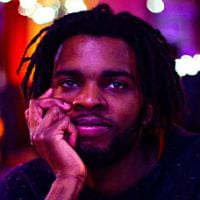
Elliot Scott is passionate about introducing STEM to the next generation of innovators. He has been a leading force in the Bristol University summer schools, in outreach programmes for younger children, in Access to Bristol courses and by organising workshops for the Innovation Design and Computer Science Societies. He is well known across the faculty as a friendly face willing to offer technical advice. As a survivor of Meningitis, Elliot’s determination has helped him overcome many obstacles in his life.
“My approach used to be; stay quiet, try hard to get to the top, then you can represent. But recently with Black Lives Matter and everything else going on, I’ve been rethinking my position and feeling I need to be more vocal. Representation is so important, because I know Impostor Syndrome has been a big thing for me. As one of very few black people doing STEM subjects at school, I thought I was prepared for university but at times I still wondered should I be here? So as I got into the higher years, I’d say to younger BAME students if you need any help, I’ll do whatever I can. I want to inspire younger kids too, just like some of my teachers inspired me. I remember saying to one black girl on the Access to Bristol course – ‘be an engineer because we need more!’”.
Selim Tudgey
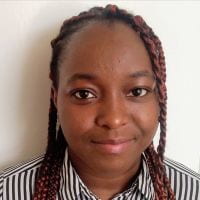
Selim is a member of the 2019/20 FARSCOPE Centre for Doctoral Training (CDT) cohort. Throughout her Robotics PhD programme, Selim has been a tireless advocate for Equality, Diversity and Inclusion (EDI), juggling a heavy and complex programme of study with membership of the school’s EDI committee. She has engaged very actively and has made numerous suggestions to improve the FARSCOPE student experience, both from an EDI and wider perspective. Her positivity, energy and determined character are quite inspirational.
Find out more
Watch her full interview
“While I was at UWE studying for my aerospace undergrad, pictures of black students were placed on the corridor walls, mainly of art students but still it was really nice to see. UoB is vastly different – it’s a great university but it’s been all white people on the walls, white and male dominated. But that’s starting to change. Seeing more images of black people in STEM is a good thing. Oh my gosh, it’s been a lonely journey for me, often being the only black person. I’ve wanted to do more outreach but it’s so difficult to juggle everything when you feel like you need to work twice as hard as everyone else to prove yourself and keep your place. But now people have created a gap for me to step into and say, ‘Hey, I’m here. I’m black. I’m doing robotics, I’m doing engineering’. I absolutely love the FARSCOPE programme, because you do a lot of engagement, a lot of enterprise and a lot of outreach. Focusing on a PhD is important but it’s also really good to do other stuff.”
More inspiring stories
Lara Lalemi
Lara has worked tirelessly to help the School of Chemistry, and the University more widely, become a more inclusive place to work and study. She has demonstrated creativity, energy, and truly exceptional levels of leadership through her work on inclusion, raising the voices of black academics and students, and outreach.
Watch her full interview
Lara was instrumental in setting up the Being BME in STEM event in the University, and last year’s (the first) Inspiring Scientists event which showcased BAME Scientists. Both these events have had enormous impact. Lara also approached the University directly to gain support in the wake of the death of George Floyd. She is simply outstanding in her work to champion Black Lives within the University.
Dogba Djaze
Whilst studying, Dogba co-founded the E2E peer to peer communication platform which has grown to support over 600 engineering students and 45+ academics, achieved multiple awards and a £10k grant. Dogba is driven, passionate and a great engineer and entrepreneur. He is responsible for the startup’s technological vision and has been designing a platform upgrade ready to trial at six additional universities. The platform has an important social role, keeping students and lecturers connected when they are outside of the formal university environment, enhancing mental health and wellbeing and contributing to the development of a new generation of future engineers. E2E has had a positive impact on student confidence, improved student learning outcomes and helped lecturers become more efficient and productive.
Our thanks to Tendai Elizabeth Machemedze and Ebony Stephenson for the interviews above, which were recorded to mark the nominations for the University’s Inspiring Black Engineers and Scientists Awards event on 15 October.


